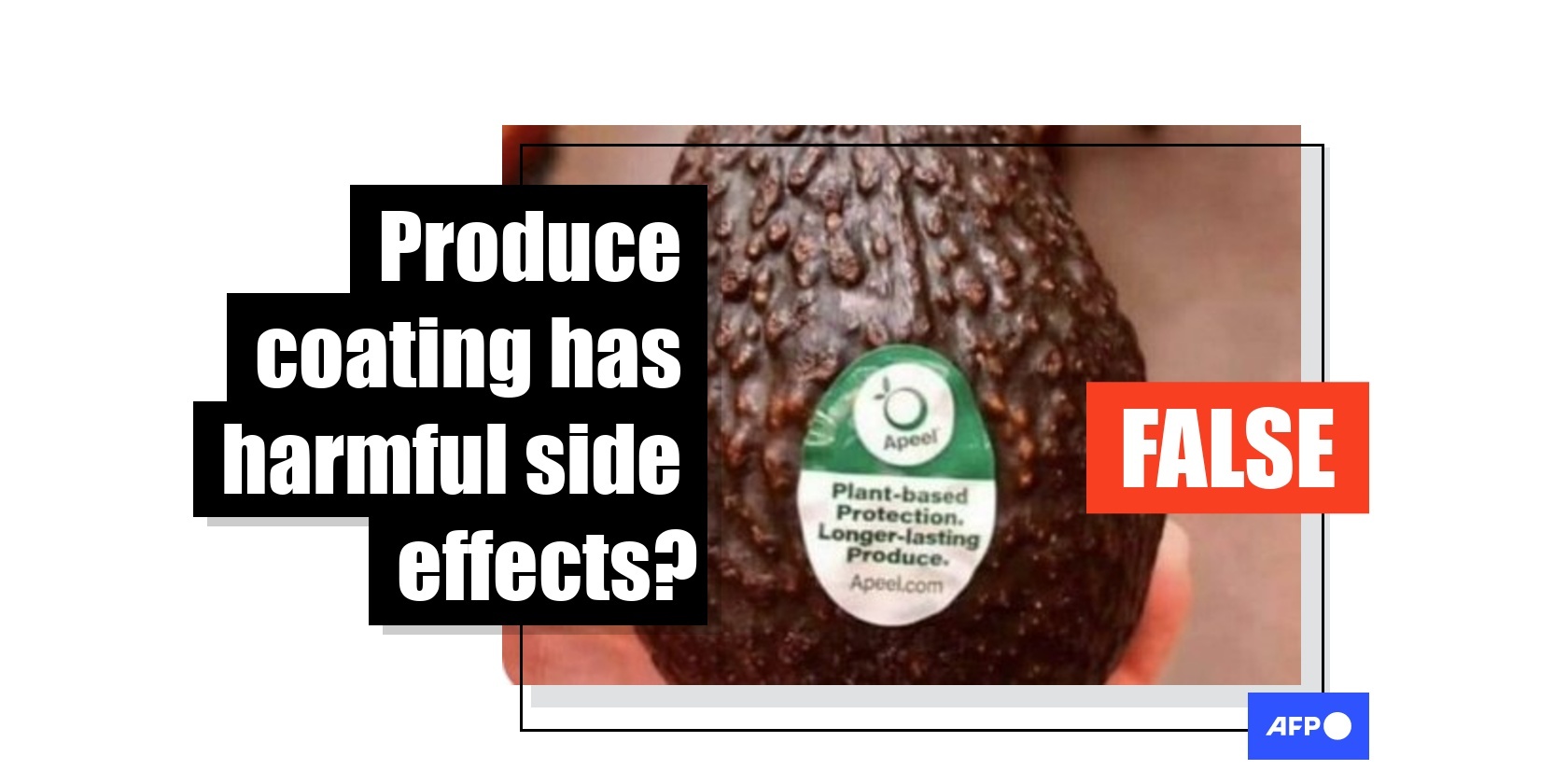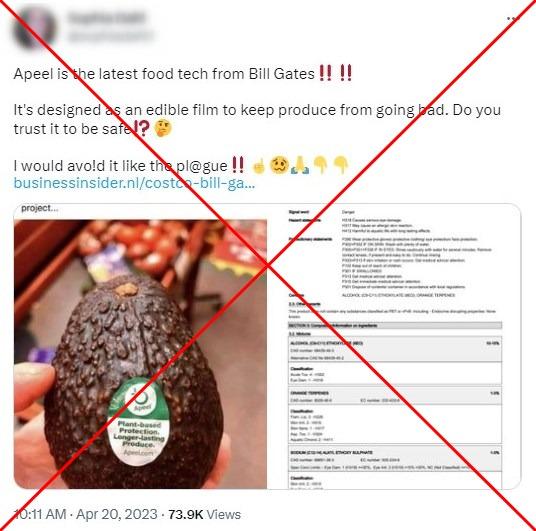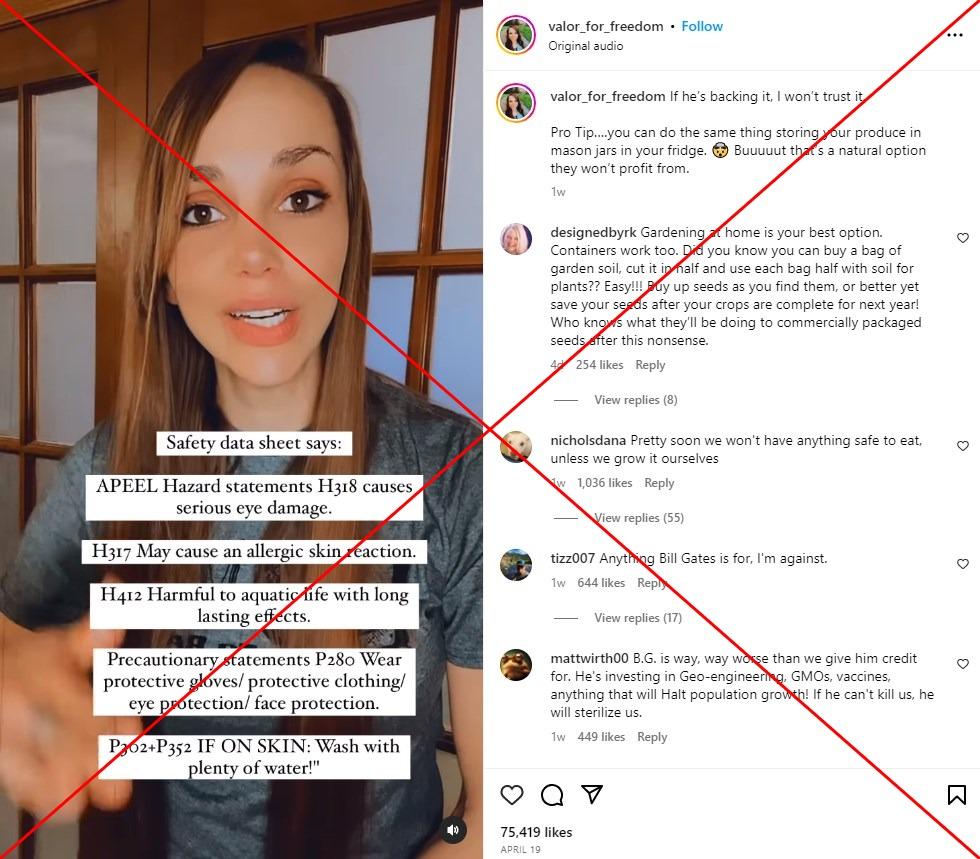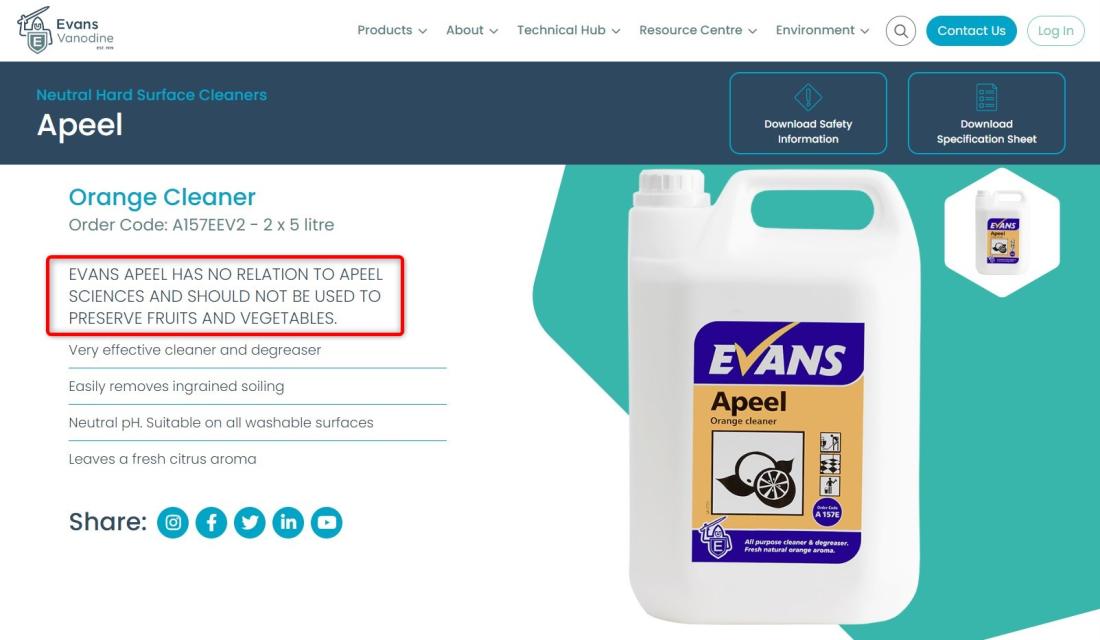
Apeel food additive is safe, health authorities say
- This article is more than two years old.
- Published on May 2, 2023 at 18:18
- 3 min read
- By Saladin SALEM, AFP USA
- Translation and adaptation Natalie WADE
"Apeel is the latest food tech from Bill Gates! It's designed as an edible film to keep produce from going bad," says an April 20, 2023 tweet. "Do you trust it to be safe!? I would avo!d it like the pl@gue!"
The post includes a screenshot of what appears to be a product safety data sheet warning of several potential health risks. A video shared April 19 on Instagram promotes the same list.


Thousands of social media users on platforms such as TikTok and Facebook have posted similar claims in German, French, Czech and Hungarian. The food coating's safety has also been the subject of numerous articles.
The claims warn against eating foods with the Apeel sticker, saying the product is a dangerous chemical that causes eye damage and skin reactions.
But Apeel Sciences spokeswoman Jess Fitzgerald told AFP the warnings circulating online are unrelated to the company's food coating.
"It's perfectly safe and meant to be consumed as part of the extra layer of protection," Fitzgerald said April 20.
In fact, the safety data sheet (archived here) is for orange-scented all-purpose cleaners and sprays from British manufacturer Evans Vanodine -- which also go by the name Apeel.

"Evans Apeel has no affiliation with Apeel Sciences and should not be used to preserve fruits and vegetables," the company says on its website (archived here).
Food coating ingredients
Apeel Sciences produces a plant-based coating called Edipeel to keep fruit and vegetables fresh for longer, according to the company's website(archived here). The colorless, odorless and tasteless protective layer is designed to help retain moisture while keeping oxygen out.
The coating consists solely of purified monoglycerides and diglycerides, edible emulsifiers that are found in the peels, seeds and pulp of fruits and vegetables. The US Food and Drug Administration (FDA) has generally recognized the additives as safe.
"Since they are substances that both occur naturally and are also produced in the digestive process of fats, they have been proven to be safe, and there is also no limit for absorption," Jurgen Konig, professor of nutritional sciences at the University of Vienna, said April 20.
Health Canada told AFP it issued a letter of no objection for Edipeel, allowing the product's use under certain conditions. The agency previously evaluated the safety of the coating and its ingredients and found they "pose no health hazard to the consumer," a spokesman said April 19.
In Europe, monoglycerides and diglycerides have been used on fruit and vegetables since at least 2019, a European Commission representative told AFP on April 27. However, the EU has only approved the layer for foods whose peel is usually not consumed, including oranges, avocados and mangoes -- and the produce must be labeled accordingly.
Company ties
Some posts connect Apeel Sciences to Microsoft co-founder Bill Gates and the World Economic Forum (WEF), both frequent targets of conspiracy theories.
"Apeel received research funding from the Bill and Melinda Gates Foundation in 2012 and 2015 to begin development of its plant-based protection technology," Apeel's Fitzgerald said.
She noted that the philanthropy is not an active investor in Apeel Sciences.
Apeel Sciences was chosen in 2018 by the World Economic Forum as a "Technology Pioneer" and both the company and its founder, James Rogers, are listed on the global body's website. But the company said it has never received WEF funding.
AFP has previously fact-checked misinformation about food additives here and here.
Copyright © AFP 2017-2026. Any commercial use of this content requires a subscription. Click here to find out more.
Is there content that you would like AFP to fact-check? Get in touch.
Contact us
